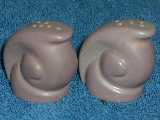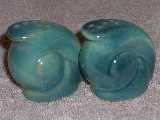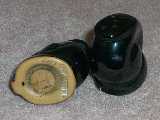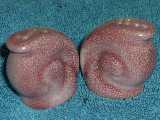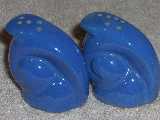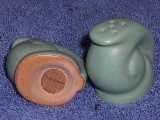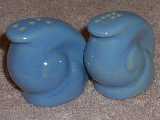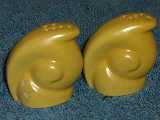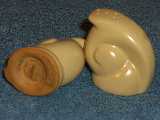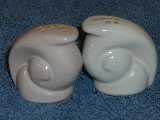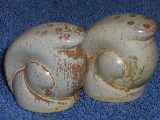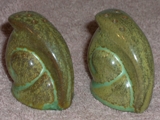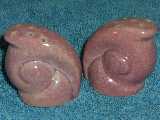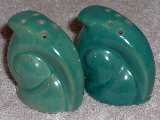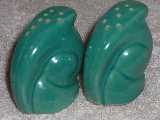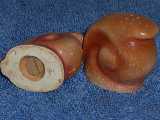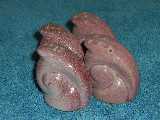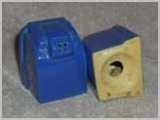

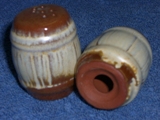
Snail Shakers #558H: 1942-1949
If the American market wanted miniatures during World War II the #558H Snail shakers certainly filled the bill. These shakers are so small they are almost not usable at the table. They would make nice individual sets but to my knowledge Frankoma did not market them that way.
Frankoma produced the #558H snail shakers for several years and as a result they are fairly easy to find. The prairie green ones are common and a wide variety of glazes is available. Apparently because they are not as lovable as the cats, bulls, and elephants the snail shakers are relatively inexpensive. Because of the small size these shakers are usually not marked, but the onyx pair and the sky blue pair shown below have the impressed Frankoma with oval “o” mark.
Production falls clearly into two groups. The Type 1 design is a very small compact shaker with small precisely placed pour holes drilled in a fairly consistent cursive pattern. Most of the “P’s” are right-side-up with the tail pointing away from the narrow end. This is the shaker produced in the early “post-fire” era. The Type 2 design is a distinctly larger shaker with a crudely drilled oversized hole set. Most of the “P’s” are upside down with the tail pointing toward the narrow end. This is the shaker Frankoma produced in the 1948-1951 era.
Snail production does not necessarily match the “Standard” dates listed above. The snails may have been introduced before 1942 and almost certainly were made as late as 1951. I believe none were produced from about 1944 through 1947 and as such the type two snails are a re-introduction. A break of several years in production could account for the Type II shakers having a larger size and distinctly different pour hole pattern.
Because of its design this pattern is difficult to damage.
